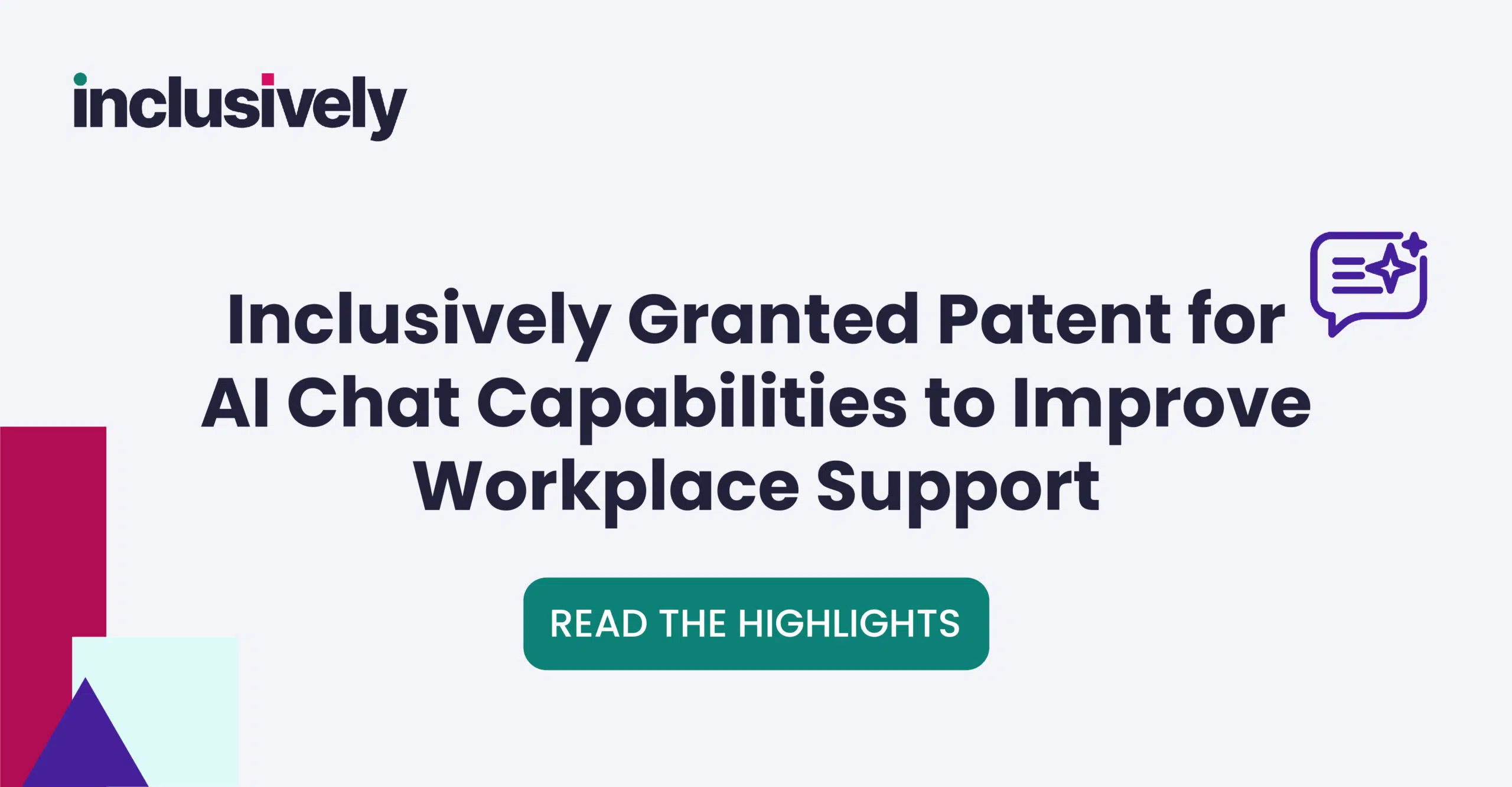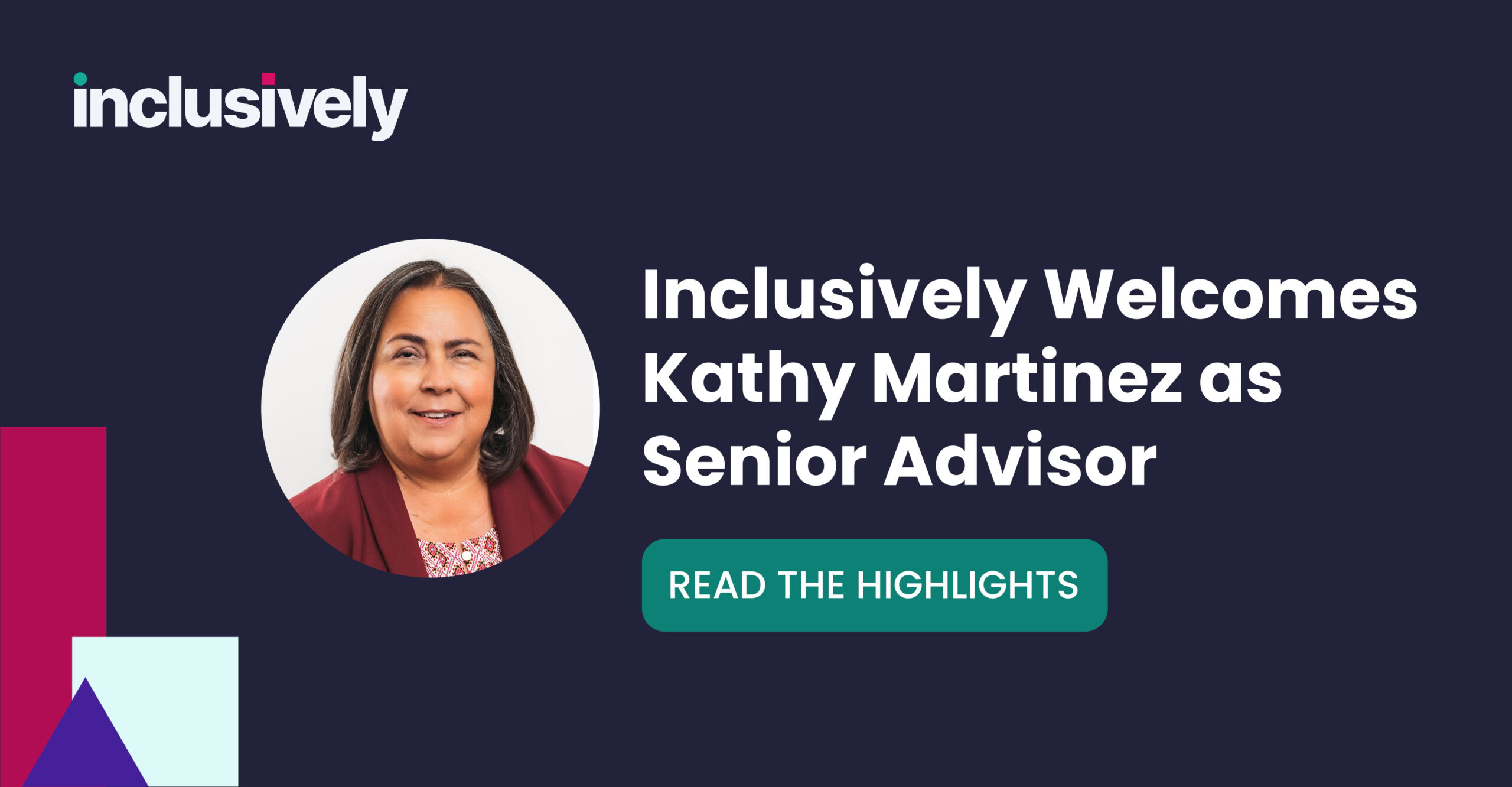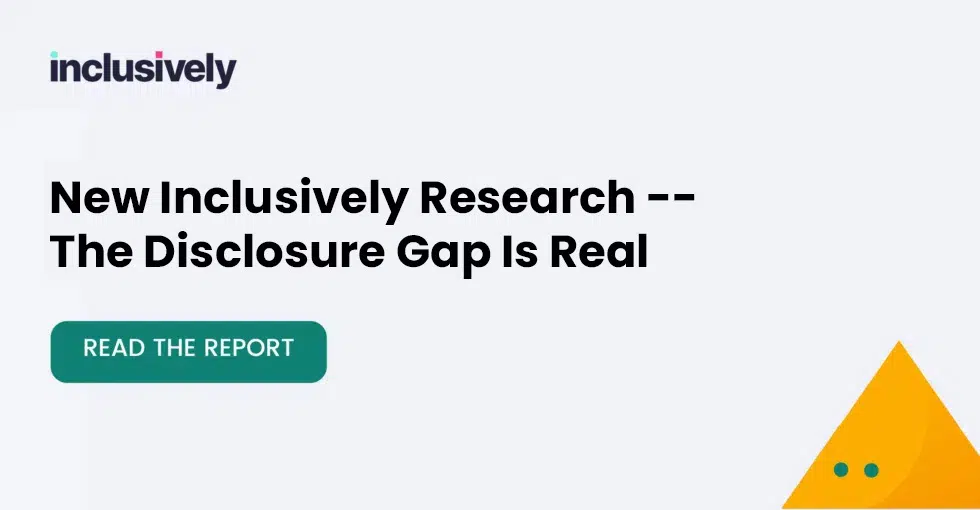We’re going to Davos.
In January, Charlotte Dales and I are representing Inclusively at the World Economic Forum. We’re excited to learn from other thought leaders, identify opportunities to collaborate — and to share some of our own insights on January 17th:
- Co-founder & CEO Charlotte Dales will be joining The Female Quotient with C-Suite executives from IMD, Cisco, Deloitte, and Splunk for a session AI’s Positive Outcomes for Women. Livestream the session on @femalequotient’s social channels.
- Co-Founder & COO Sarah Bernard joins AI decision-makers from IBM Consulting. They will answer a fundamental question: How do you design and build AI solutions for your business that are fair and empower people?
The importance of Universal Design is a big one. We’ve learned that when you design for people with disabilities — physical spaces, software, jobs — everyone benefits. More personalized work is what people are demanding, and in 2024, this demand is only going to grow. Global companies are experiencing a surge in accommodation requests from their employees and are desperate for an easy-to-use interface that addresses the increased demand for personalized work environments.
One of this year’s themes is on creating growth for a new era. This is perhaps the theme we’re most excited about.
We started as a tool for people with disabilities. But since our platform streamlines the process for a personalized employee experience for all employees, a byproduct of using Inclusively is leveling the playing field at work for people who come from all socioeconomic backgrounds
We’re making work better for neurodivergent employees, single mothers who need childcare accommodations, someone who is a caregiver for a parent or family member — really anyone who is human. Work becomes more productive when people are set up for success based on their own needs. This isn’t just good for individual careers, it’s good for the economy.
In the future, getting accommodations at work won’t just be a judgment call made by managers (this is good for managers, by the way: the data says they’re burned out from dealing with requests like this). It will be imprinted into the tech and workflow of companies and structured to be scalable and unbiased.
That’s what we built Inclusively for — our solution is a tech platform, data-empowered and anonymous. It will enable companies to make work more productive for all.
Another theme we plan to engage with: AI as a driving force for the economy and society.
Many workers are battling burnout and detachment in what Microsoft’s chief people officer deemed a “human energy crisis.” HR leaders are at the forefront of addressing this challenge, all while helping to maintain productivity.
As the workforce becomes dominated by Gen Z and Millennials, who expect personalization in all aspects of life, traditional, one-size-fits-all HR strategies are becoming obsolete. AI can offer a more anticipatory and customized approach.
Tools like Retain can offer AI-powered suggestions for accommodations, and for HR managers, can pool together policies, resources, and accommodations that work for other similar companies.
By making the process more streamlined and removing process hurdles, HR leaders can reduce burnout for the managers throughout their companies. These managers have been overburdened with one-to-one accommodations requests since the pandemic.
Billions of dollars are lost on low productivity every year.
According to a report cited by the CDC, productivity losses related to personal and family health problems cost U.S. employers $225.8 billion annually. The CDC also reports that 22% of adults “reported providing care or assistance to a friend or family member in the past 30 days.” This issue is impacting the workforce, and how people are able to show up for their jobs.
We know that over 30% of the workforce identifies as having a disability, but organizations think that the number is closer to 4% to 7%. This discrepancy shows a lack of a safe structure for employees to disclose accurate data.
Inclusively has a lot to contribute to these conversations. We’re also excited about the “a-ha” moments that will spring up as we meet new people and hear new ideas
It’s a great time for this to be happening — our company is in a new phase having just closed our Series A.
Now, we more fully understand our identity and are accelerating our efforts, creating urgency around our mission.



